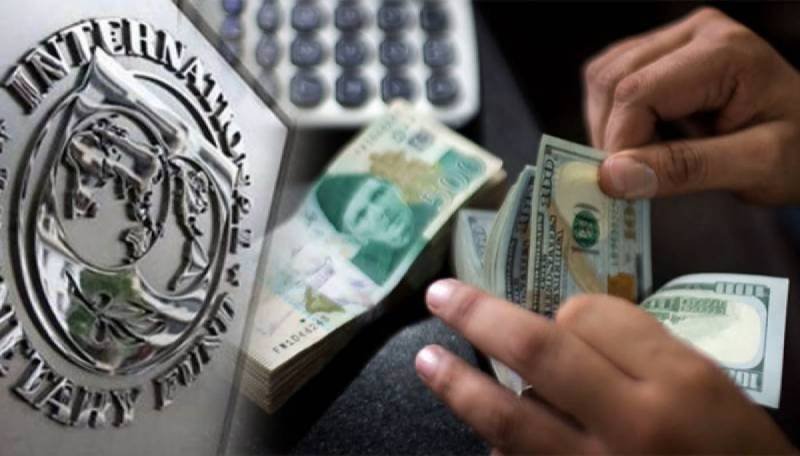Pakistan’s economy is currently navigating a complex and challenging period as it seeks approval for the next tranche of the International Monetary Fund (IMF) loan. These challenges encompass a wide range of issues, from fiscal deficits and inflation to a precarious current account deficit. Understanding and addressing these issues are critical not only for stabilizing the economy but also for boosting investor confidence and ensuring sustainable growth.
Economic Landscape
As of 2024, Pakistan’s economic indicators paint a concerning picture. Inflation rates have surged above 25%, driven primarily by increases in food and energy prices. The fiscal deficit, projected at 7.4% of GDP, reflects high government expenditures and a narrow tax base. Meanwhile, the current account deficit is expected to surpass $18 billion by the year-end, underscoring the imbalance between imports and exports.
Fiscal Deficit and Inflation
The fiscal deficit has been exacerbated by significant government spending on subsidies and public sector wages, coupled with challenges in revenue generation due to tax inefficiencies. To address these issues, Pakistan must implement comprehensive tax reforms to broaden the tax base and enhance revenue collection. Additionally, reducing non-essential expenditures is essential to curtail the fiscal deficit.
Causes of Fiscal Deficit:
Strategies to Reduce Fiscal Deficit:
Current Account Deficit
Pakistan’s current account deficit is largely driven by high import bills, sluggish export growth, and large remittance outflows. The country needs to enhance export competitiveness by promoting export-oriented industries and providing incentives for exporters. Simultaneously, policies to reduce the import of luxury and non-essential goods are necessary to narrow the current account deficit.
Strategies to Improve Current Account Deficit:
Price Cuts and Subsidies
Rationalizing subsidies, particularly in the energy sector, is a key condition for IMF loan approval. While this may lead to short-term price hikes in utilities, it is essential to reduce the fiscal burden and ensure sustainable economic growth. Gradually phasing out energy subsidies and implementing targeted subsidies for vulnerable populations can mitigate the impact on the general public.
Subsidy Rationalization:
Privatization of State-Owned Enterprises
Privatizing inefficient and loss-making state-owned enterprises (SOEs) is crucial to enhancing efficiency, reducing the fiscal burden, and attracting foreign investment. Transparent and competitive bidding processes, supported by robust regulatory frameworks, are essential for successful privatization initiatives.
Steps for Successful Privatization:
Independent Power Producers (IPPs)
Power sector’s circular debts rises to Rs.2.635trn. Addressing the circular debt in the power sector, amounting to $14 billion, requires renegotiating agreements with independent power producers (IPPs). Aligning power tariffs more closely with actual costs, improving the efficiency of power generation, and promoting investment in renewable energy are critical steps in this regard.
Key Measures:
Public Sector Salaries and Reforms
Rationalizing public sector salaries and pensions is necessary to reduce the fiscal burden and improve public sector efficiency. Introducing merit-based recruitment and promotion policies, alongside performance-based salary structures, can enhance productivity and streamline public sector operations.
Public Sector Reforms:
Implement merit-based recruitment and promotion policies to improve efficiency.
Introduce performance-based salary structures to incentivize productivity.
Streamline public sector operations to eliminate redundancies and improve service delivery.
Trade Balance: Imports and Exports
Pakistan needs to diversify its export base and enhance value addition in key sectors such as information technology, textiles, and agriculture. Promoting local manufacturing and implementing import substitution policies can reduce reliance on imported goods, thereby improving the trade balance.
Enhancing Exports:
Reducing Imports:
IMF Loan Approval Statistics and Recent Statements

Recent IMF statements emphasize the need for Pakistan to implement structural reforms to achieve long-term economic stability. The IMF has highlighted fiscal discipline, subsidy rationalization, and privatization as key conditions for loan approval. The loan is expected to range between $6-8 billion, aimed at stabilizing the economy and enhancing foreign exchange reserves.
Recent IMF Statements:
IMF Loan Statistics:
Steps to Address Economic Challenges
Addressing Pakistan’s economic challenges requires a comprehensive approach that encompasses fiscal reforms, monetary policy, structural reforms, trade policies, and social safety nets.
Relief Measures for the Public

As economic reforms are implemented, it is crucial to provide relief to vulnerable populations affected by subsidy cuts and price hikes. Targeted subsidies for essential utilities and expanded social safety nets can mitigate the immediate impact on low-income families. Public awareness campaigns can educate the population about the benefits of economic reforms and build support for these measures.
Relief Measures:
Quotes
Local Perspective:
The path to economic stability requires tough decisions, but these are essential for sustainable growth and development.
Dr. Hafeez Pasha, a prominent economist
International Perspective:
Pakistan's commitment to implementing structural reforms is crucial for receiving IMF support and achieving long-term economic stability.
Kristalina Georgieva, IMF Managing Director
Conclusion
Pakistan’s economic challenges are formidable, but with determined reforms and strategic policy measures, the country can navigate this crisis and secure the IMF loan. These steps will lay the foundation for a more resilient and robust economy, while targeted relief measures will help mitigate the immediate impact on the public.
Share via:




nice work please keep it up